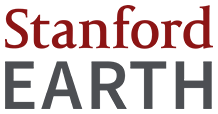Sustainable Food and Agriculture
Foundation & Breadth
- BIO 81 AND BIO 82 or BIO 83; OR BIO 47H or HUMBIO 2A & 2B or EARTHSYS 116
- CHEM 31A & 31B or 31X
- ECON 1
- GS 1 or GS 4 or EARTHSYS 117 or EARTHSYS 128
- MATH 19, 20, 21
- MATH 51 or CME 100
- PHYSICS 41 or PHYSICS 45 or GEOPHYS 110
- Statistics: BIO 174H or BIO 202 or ECON 102A or STATS 101 or STATS 110 or 116 or 141
- EARTHSYS 10
- EARTHSYS 111
- EARTHSYS 112
- EARTHSYS 210A, B, or C (Senior Capstone & Reflection)
- EARTHSYS 210P (Capstone Project)
- EARTHSYS 260 (Internship)
- WIM: EARTHSYS 200, EARTHSYS 191, EARTHSYS 177C, EARTHSYS 149, EARTHSYS 135, or another designated WIM course in a related department- must be approved by an advisor. Your WIM course may not also count towards your track or electives, if counted as a WIM.
(These courses must be taken for a letter grade: EARTHSYS 10, 111, 112, 210 A/B/C, WIM)
Track
A total of seven courses are required from the Food and Agriculture Focus Areas. In addition, two electives are required for this track. All track courses and electives must be taken for a letter grade (nine courses total).
Fundamentals of Agriculture Production and Economics: (both required)
- ECON 106: World Food Economy
- EARTHSYS 185: Feeding Nine Billion
Biogeophysical Dimensions
- EARTHSYS 155: Science of Soils
And choose 2 of the following
- BIO 137: Plant Genetics
- HUMBIO 113: The Human-Plant Connection
- HUMBIO 130: Human Nutrition
Social Dimensions: (choose 1)
- BIO 144/HUMBIO 112: Conservation Biology: A Latin American Perspective
- EARTHSYS 105: Food and Community: Food Security, Resilience and Equity
- EARTHSYS 181: Urban Agriculture in the Developing World (offered occasionally)
- EARTHSYS 187: FEED the Change: Redesigning Food Systems (must enroll in 3 units)
- ECON 118: Development Economics (note this class has pre-reqs: ECON 51 and 102B)
- HISTORY 203G: Mobile Food: A Global Food History
- HUMBIO 113S: Healthy/Sustainable Food Systems: Maximum Sustainability across Health, Economics, and Environment (alternate years)
- HUMBIO 166: Food and Society
Applied Study in the Field
- EARTHSYS 180: Principles and Practices of Sustainable Agriculture
Electives
TWO additional courses at the 100-level or above are required. Electives allow students to personalize their Earth Systems curriculum by pursuing higher-level courses offered in their focus area, or by incorporating new academic perspectives. Each must be a minimum of 3 units.
Track Updated 7/2017



